Artificial intelligence will determine gold or silver in the Olympics!
The Olympic Games, a global event that billions of people watch every four years, are back to dazzle the world. Since the last Olympics in 2020, the world has witnessed a radical transformation with the emergence of the new generation of artificial intelligence, which has begun to make profound changes in various aspects of our lives.
Artificial intelligence has become an integral part of many sectors such as healthcare, agriculture, industry and transportation, so it was only natural that its impact would extend to the world of sports. In response to this development, the International Olympic Committee decided to integrate AI technologies into the organization and management of this year’s tournament.
The move will have far-reaching implications for all aspects of the Olympic Games, aiming to enhance athlete safety, improve the broadcast experience for viewers, and increase resource and energy efficiency. Not only will this initiative improve the current edition of the Games, it will also pave the way for more advanced and innovative future Olympic Games, heralding a new era in global sport.
The Olympic Movement’s Global IT Partner, Atos, coordinated a team of 15 technology partners comprising more than 2,000 experts, all working to make the Paris 2024 Olympic and Paralympic Games fully connected, secure and technologically enhanced.
Artificial Intelligence Carries the Olympic Torch
For the first time in Olympic history, artificial intelligence will be involved in all aspects of athletes, starting with monitoring online abuse, by monitoring hundreds of thousands of social media accounts and reporting offensive messages, with the number of posts expected to reach half a billion during the Games.
Alibaba - Chinese AI makes its presence felt
In collaboration with Alibaba, a record number of multi-camera replay systems using AI will be available. Multiple cameras capture images of a sporting event from different angles. AI then analyzes these images and upscales them using cloud computing, providing greater processing power than local devices.
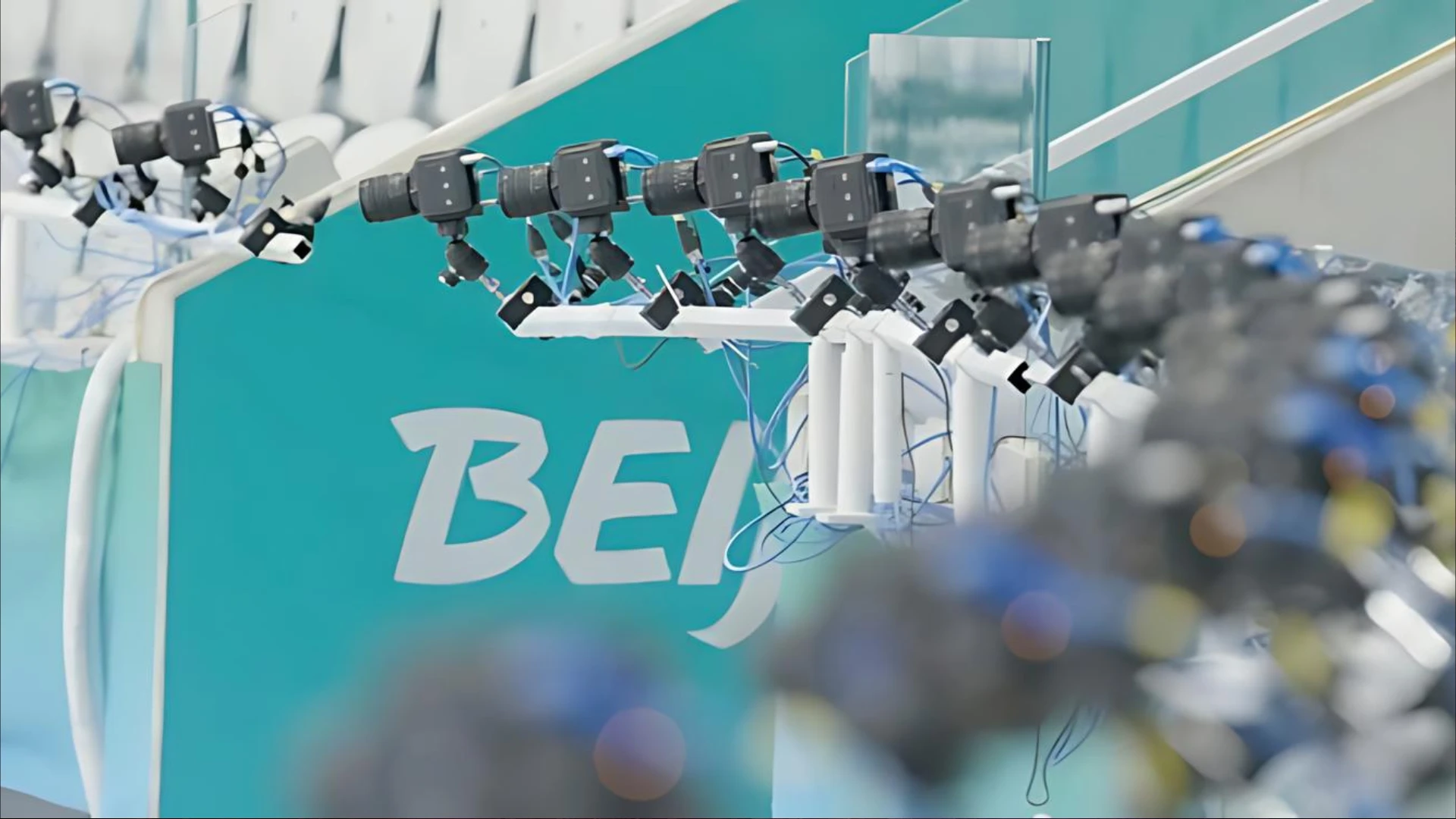
The system then combines the processed images to create a 3D model of the sports scene; this system allows for scenes to be created from angles that were not actually captured by the cameras! For example, the game can be viewed from a specific player’s point of view, even if there is no camera at that exact point. The main advantage of this technology is its ability to generate scenes from any possible angle; this allows viewers to explore the game from multiple perspectives; and also benefits sports analysts.
The technology will create 3D models and map additional viewpoints across 21 sports and disciplines. Artificial intelligence will also be used to enhance the broadcast and viewing experience by creating videos of highlights in multiple formats and languages.
If there is an artificial intelligence system in cameras, of course China will find it, it has no competitor!
An advanced data collection and energy management system will be used for the first time, monitoring energy consumption in real time and using the collected data for future planning of the Olympics. The IOC aims to continuously improve the organisation and management of the Olympic Games, with a particular focus on making them more sustainable and energy efficient.
Intel Digital Twin
Semiconductor giant Intel has joined the fray with an ambitious project to support the Paris 2024 Olympic Games, creating 30 digital twins of key sites in the city. These include landmarks such as the Eiffel Tower, Place de la Concorde and the Invalides Hotel. These digital twins are actually advanced 3D models of the venues that will host the Olympic events.
This innovative technology has brought significant benefits to the organizers of the Paris 2024 Olympic Games. It has enabled them to work more efficiently and collaboratively, allowing them to prepare remotely for various aspects of the event. This has included planning security procedures, arranging logistics, and developing crowd control strategies. The use of this technology has had significant additional benefits. It has helped reduce the overall costs of organizing the event, and it has also reduced the environmental impact of the Olympic Games by eliminating the need for frequent travel to physical venues. In this way, this initiative combines organizational efficiency with environmental sustainability.
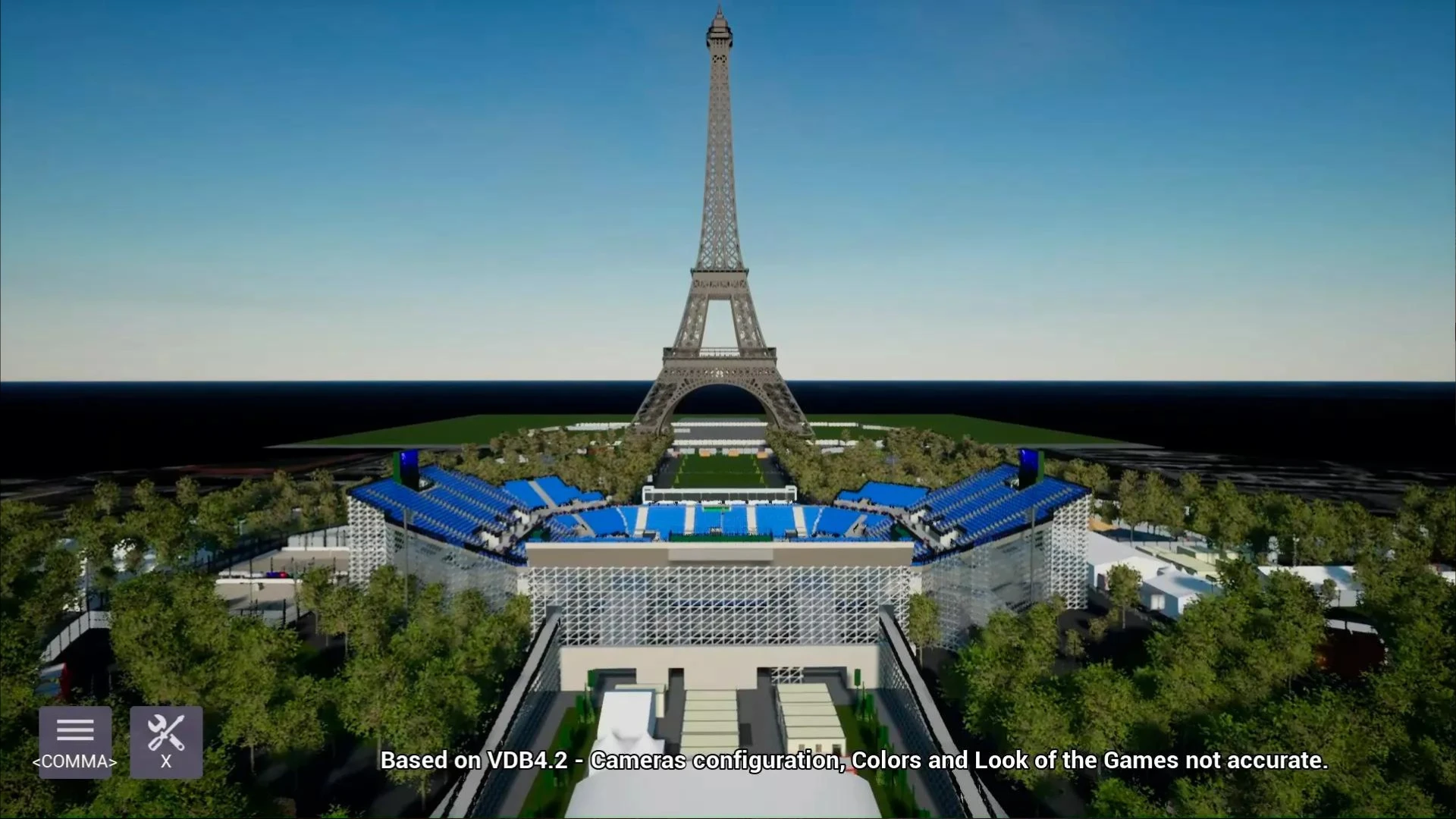
Intel is introducing a new feature that aggregates key moments from 14 sports and specialties using artificial intelligence and rebroadcasts them as summary clips based on the preferences of media rights holders. This feature aims to personalize their content and increase their engagement with audiences across the internet and social media.
The feature is based on AI models trained using Intel Geti AI software tools that specialize in processing AI-powered visual content; these sports models were trained using content from the massive archive of Olympic sports videos.
The technical side is completed by the official sponsor of the Olympics, Samsung , as the South Korean giant worked to equip Galaxy S24 Ultra phones on each country's boat during the opening ceremony on the Seine River to provide live footage via the exclusive 5G network supported by the French telecom company Orange.
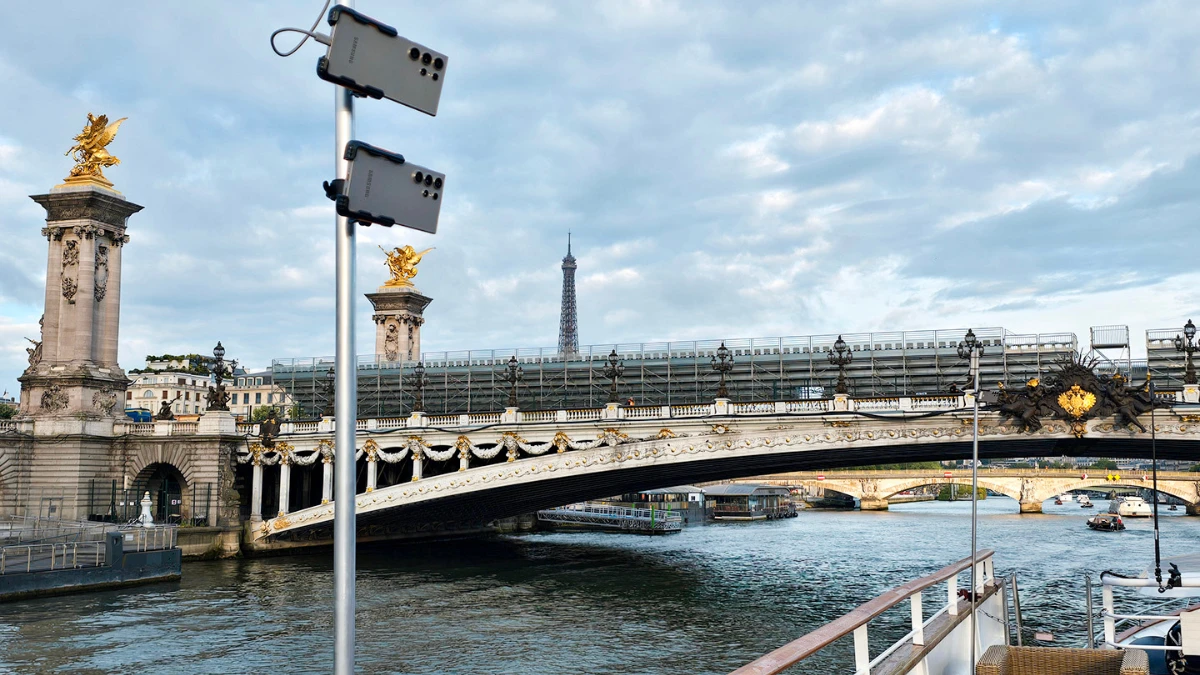
AI will also be used by the Olympic Broadcast Services during Paris 2024 in collaboration with the IOC’s commercial and broadcast partners to improve internal workflows, enhance the viewer experience, enrich storytelling and better explain some sporting events.
Artificial Intelligence Rules the 2024 Olympics
Who would have believed such a revolutionary leap in Olympic history? But that’s technology! At the 2024 Paris Olympics, artificial intelligence will be used to help determine who wins and who loses, as well as how and why those wins and losses were achieved. Omega has been the official timekeeper of the Games since 1932, and this time it will be responsible for most of the digital data generated during the Olympics.

In the past, measuring time and recording results relied mainly on hand watches and human abilities.
Omega has begun new innovations at the Olympic Aquatics Centre by installing four intelligent cameras that use “computer vision” to analyse swimmers’ movements in real time. These cameras are able to calculate each athlete’s stroke rate and the distance they cover, providing a complete biomechanical analysis of the race.
The Olympic Aquatics Centre is the sports facility designated to host aquatic sports competitions during the Olympic Games and will host swimming, diving, synchronized swimming and water polo competitions.
In diving, a system has been developed to accurately measure the distance between the diver’s head and the board to help judges decide whether to deduct points for unsafe approach to the board. In track and field, a new camera has been developed that captures 40,000 frames per second to more accurately determine the winner. Competitors’ numbers have been fitted with a sensor about the size of a credit card that sends continuous data on the runner’s location and performance, providing a comprehensive analysis of the race.
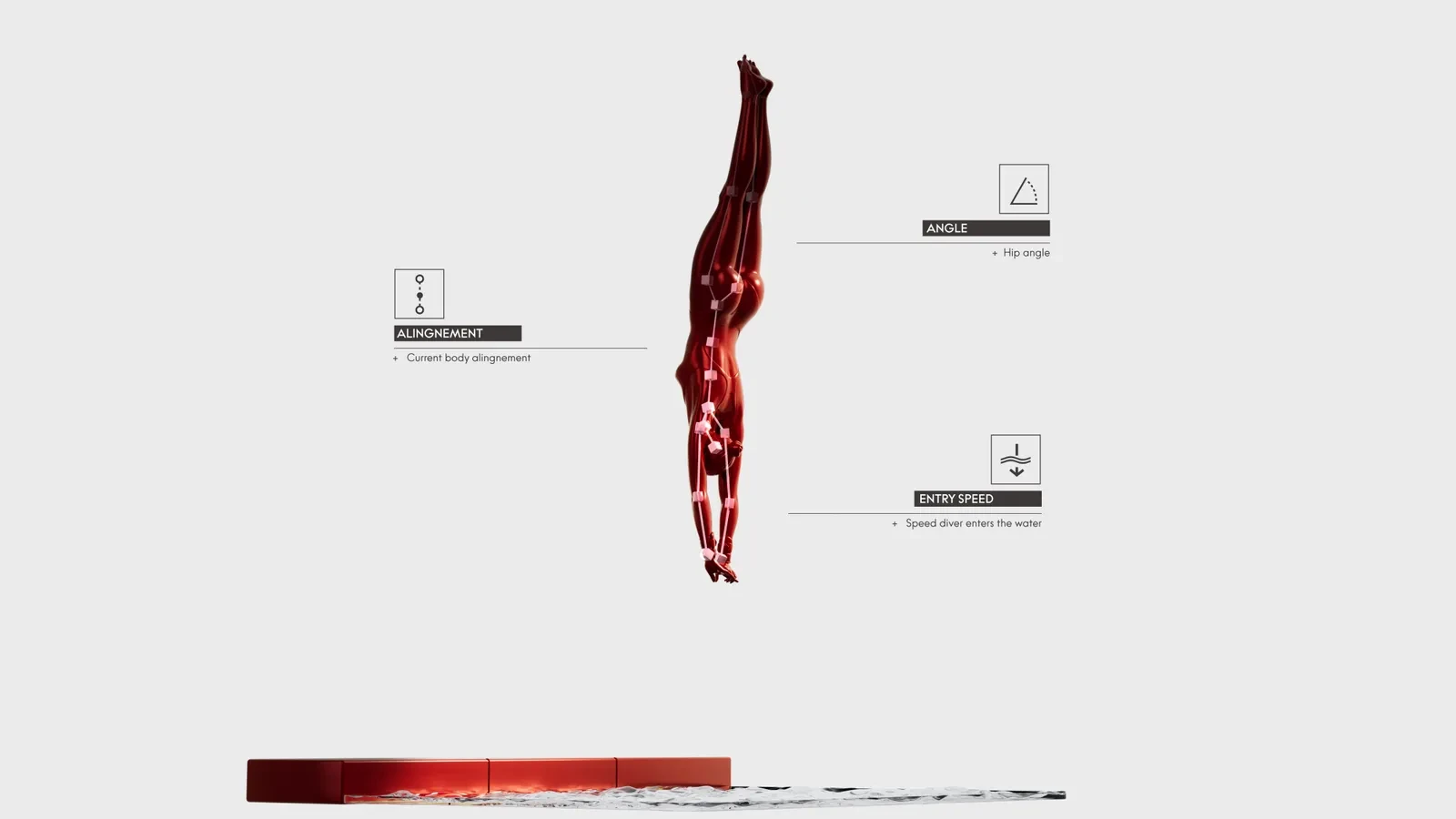
The data arrives through a series of antennas that send information to high-speed computers that continuously calculate the positions of all the athletes on the track, their steps, their stride rate, and the direction they are walking. The antennas send about 2,000 data points per second to the timing room .
In beach volleyball, smart cameras will track players' movements, calculate the distances they cover and the speed of the ball, for a deeper understanding of the game's tactics.
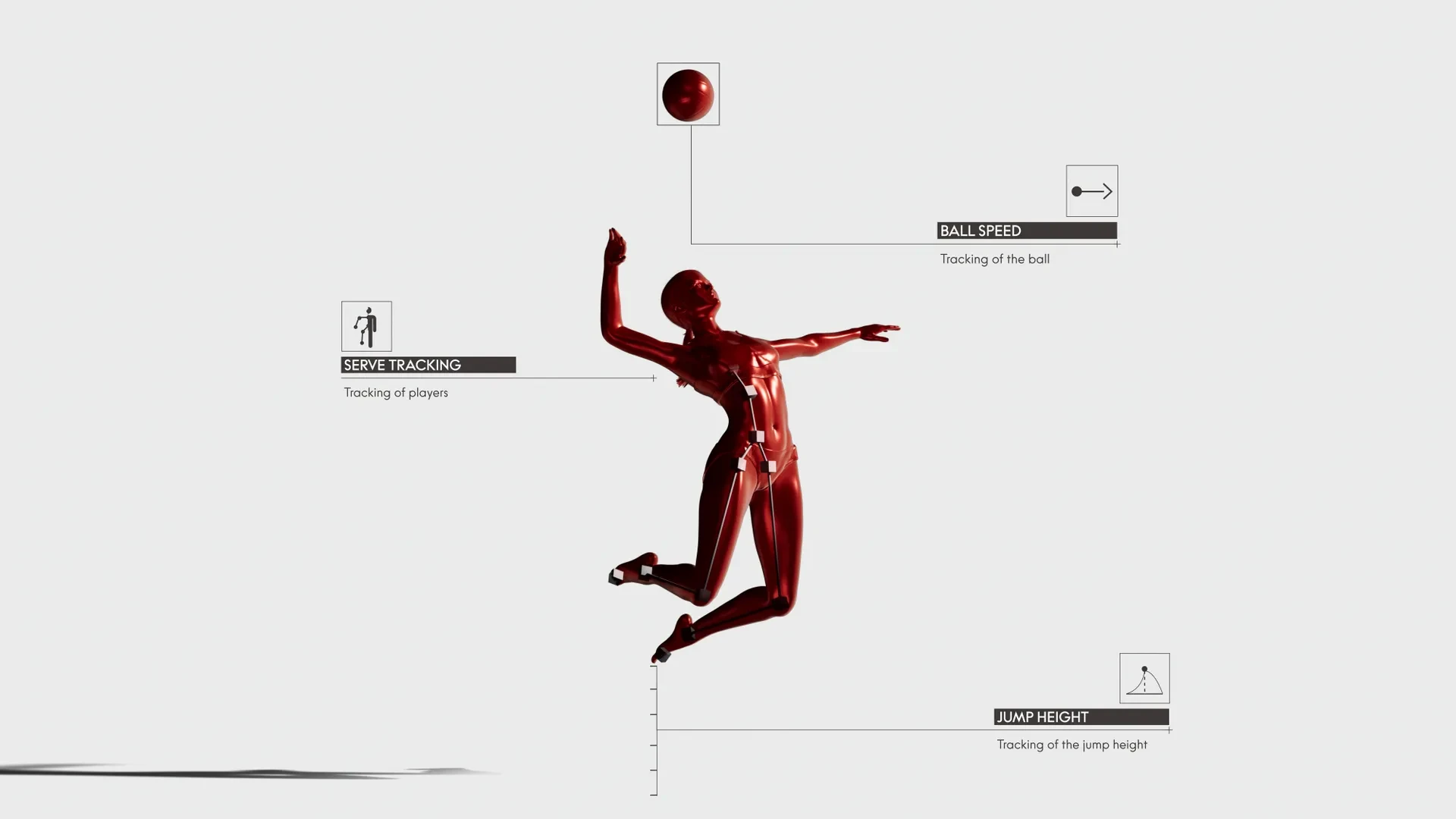
One of my favorite games is tennis; a sophisticated technological system will be used in tennis matches. This system is designed to measure and analyze two key aspects of the game; the receiver’s reaction time on the serve, and the quality of the return stroke; which provides new insights into the two most important strokes in the game and a better understanding of the relationship between reaction speed and quality of performance.
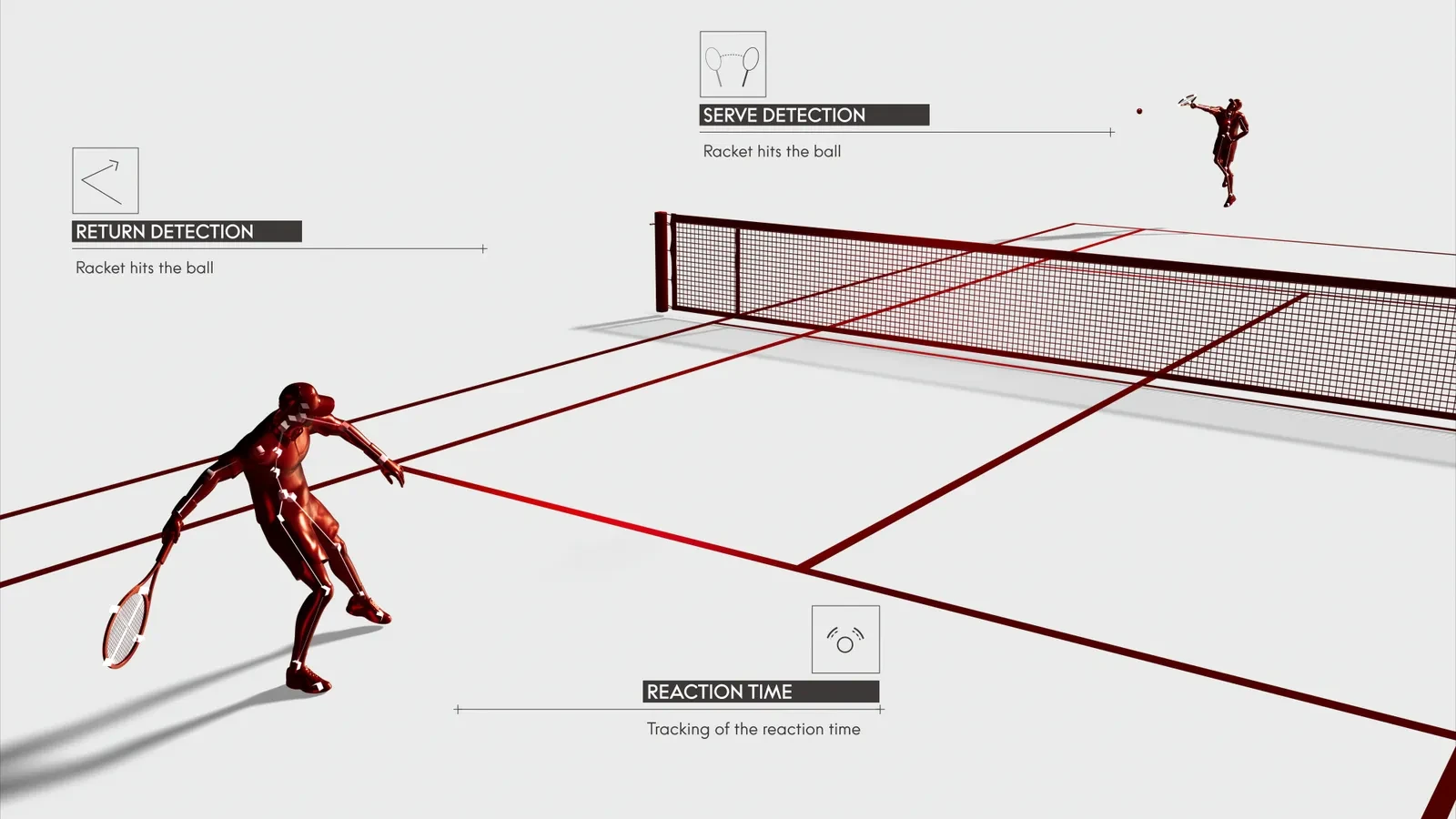
According to The Athletic, the main goal of these innovations is to accurately measure competition without disturbing the athletes; these technologies focus on biomechanics rather than biometrics ; providing a new way to measure time and explain performance in a more detailed and objective way. These technological developments will allow viewers to experience the ups and downs of competition in an unprecedented way, which will add a new dimension to the enjoyment of watching the Olympic Games.
This year, billions of people around the world will experience an Olympics like never before. We are living and witnessing revolutionary technological transformations in all fields, and we are witnessing the past blending with the future. We have been privileged to enjoy the beauty of traditional methods, while at the same time witnessing in amazement how new technologies are reshaping our world. This unique experience, this magical blend of tradition and modernity, will not be repeated. Future generations will be born into a world where these transformations have already crystallized.
Please note that we are bringing you the latest technology, which happens to be in a corrupt part of the world. I would also like to add that the Olympics is a prestigious event and is not to blame for the intellectual scum that surrounds us and wreaks havoc on the earth.

